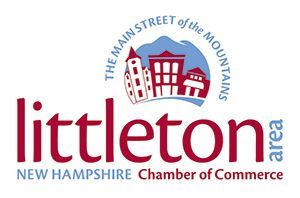
1832 – Logger Arrested for Cutting Town Timber in Peacham
On August 1, 1832, a Peacham resident was prosecuted in Caledonia County Court for cutting timber on town-owned land without permission — one of the earliest documented cases of timber trespass in the area.
According to the Caledonia County Court docket and Peacham town meeting records, the individual (name redacted in surviving records) had felled several spruce trees along the Bayley-Hazen Road, which bordered municipal forestland. The court imposed a fine and court costs. Although the punishment was minor, the case sparked a town-wide discussion about how public lands should be used and protected.
In the August 1832 meeting minutes, one resident remarked:
“Let him be fined, but not ruined. We cannot deny a man firewood in winter.”
The case led Peacham to formalize policies about who could harvest timber on town lands — a move that would be echoed by other Vermont towns in the following decades.
Sources: Caledonia County Court Records (1832); Peacham Town Meeting Minutes, Peacham Historical Association
1888 – A Frosty August Morning Shocks Farmers
On August 3, 1888, Vermont was hit by a surprise cold snap. Temperatures in hill towns like Waterbury, Montpelier, and parts of Orange County dropped to freezing, with ice reported in livestock troughs. The Middlebury Register called it the coldest August morning in Vermont’s recorded history at the time.
While western Vermont suffered crop losses, reports from Orange and West Topsham also noted “patchy frost on shaded ground.” Several farms lost beans and corn just weeks before harvest.
Sources: Middlebury Register, Aug. 10, 1888; Weather Diaries Collection, Vermont Historical Society
1902 – President Theodore Roosevelt’s Train Passes Through Wells River
While traveling through New England on August 5, 1902, President Theodore Roosevelt’s train passed through Wells River and Woodsville. Though it wasn’t an official campaign stop, residents gathered at the depot and caught a glimpse of Roosevelt, who waved from the observation car.
The sighting was later recorded in diaries and local histories, including Nancy Norwalk’s Woodsville and Wells River: Twin Villages. According to newspaper accounts, several residents hitched wagons and followed the train down the tracks.
Sources: Boston Evening Transcript, Aug. 6, 1902; Woodsville and Wells River: Twin Villages (Norwalk, 2004), NH Historical Society
1817 – Thetford Academy Reopens After Fire
On August 7, 1817, Thetford Academy reopened after a fire earlier that year had forced it to close temporarily. The rebuilt structure welcomed its largest student body to date — more than 70 pupils from Vermont and New Hampshire.
Founded in 1819 and chartered by the state legislature, Thetford Academy is Vermont’s oldest secondary school still operating under its original charter. Students in 1817 followed a rigorous classical curriculum that included Latin, arithmetic, and moral philosophy.
Sources: A History of Thetford Academy (1919); Thetford Academy Archives
1850 – Ox Pulling Contest Draws Crowds to Lyme, New Hampshire
On August 6, 1850, the village green in Lyme, hosted a regional ox pulling contest, drawing teams from Orford, Haverhill, and surrounding towns. The event was part of a seasonal agricultural fair and was covered in the Hanover Gazette and noted in local Grange reports.
The contest challenged pairs of oxen to pull a weighted stone boat across a 40-foot dirt track. One pair from Haverhill reportedly hauled over 7,000 pounds, earning top honors. While the oxen’s names weren’t recorded in the newspaper’s account, the contest was praised for its turnout, sportsmanship, and community spirit. More than 800 people attended, and the event concluded with a shared meal and dancing at the Lyme meetinghouse.
This type of event was common in mid-19th century New Hampshire, showcasing both rural skill and local pride.
Sources: Hanover Gazette, Aug. 1850 (Dartmouth Rauner Library); Grafton County Agricultural Records
Citation Summary
– Middlebury Register, Aug. 10, 1888: https://chroniclingamerica.loc.gov/lccn/sn98060050/1888-08-10/ed-1/
– Peacham Historical Association: https://peachamhistory.org
– Thetford Academy Archives: https://thetfordacademy.org/about/history
– NH Historical Society: https://www.nhhistory.org
– Dartmouth College – Rauner Library: https://raunerlibrary.dartmouth.edu
Have a story passed down through your family — a frost in summer, a presidential sighting, or a local tradition worth revisiting? Share it with us at joshua@thebridgeweekly.com. It may appear in a future edition of This Week in Local History.
Have a story?
Let's hear it!
(802) 757-2773
(603) 787-2444
news@thebridgeweekly.com





